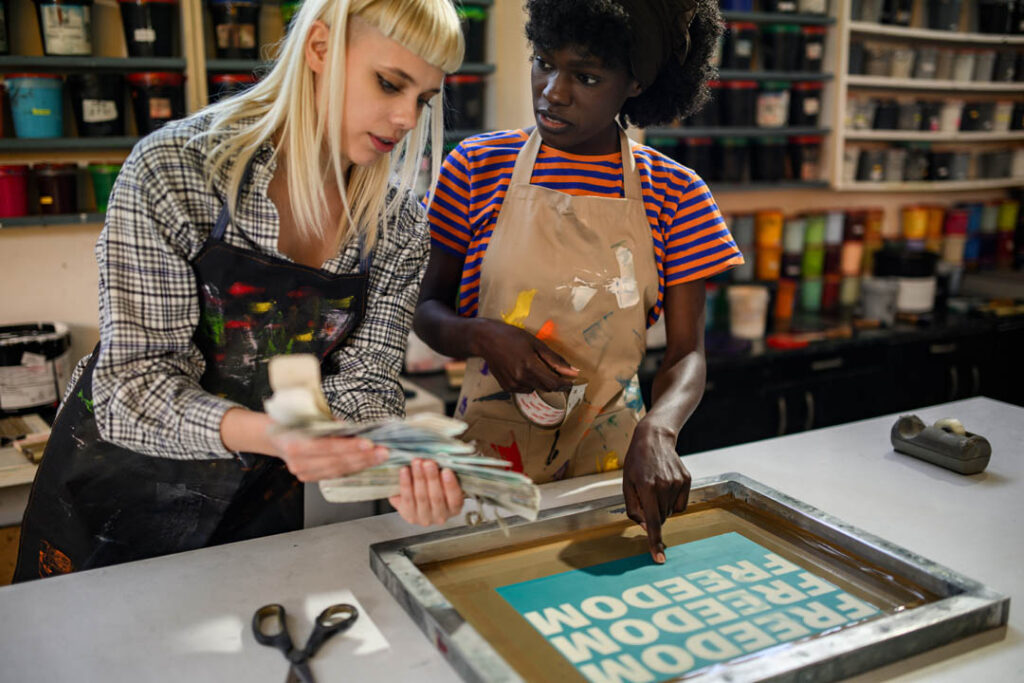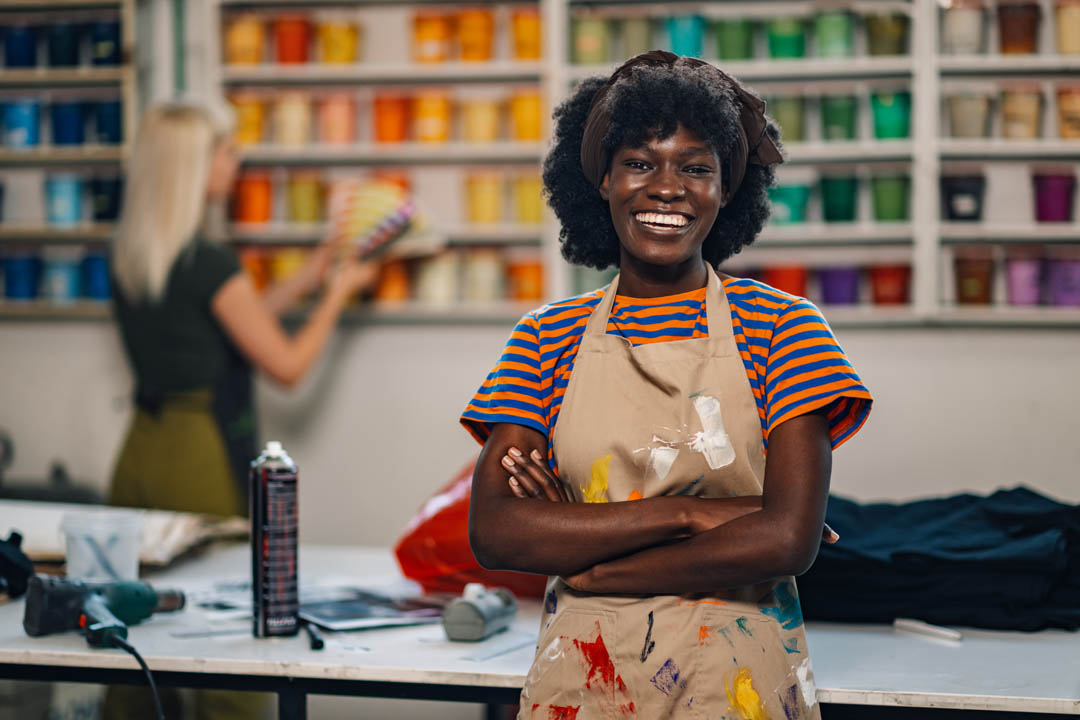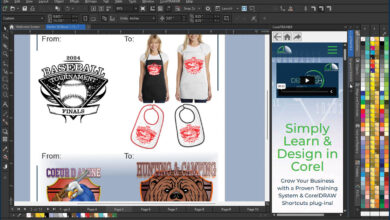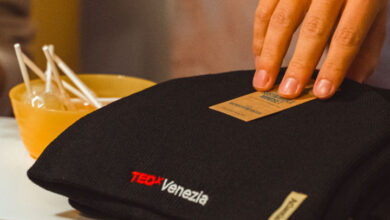The problem with talking about being women in the screen-printing industry is, I imagine, a similar problem that people of color have talking about the industry: we would like nothing more than to talk about anything else. There are countless numbers of brilliant printers, shop owners, designers, embroiderers, and other decorators who fit into these categories and have tons to say about their fields of expertise.
Instead, stages, panels, and podcasts are typically filled with white men, leaving the rest of us to remind everyone that other people exist and should be considered in these spaces. We get to talk about what it is like being our identity in the industry, instead of what we really want to be talking about: the industry itself. While we’d like to believe we’ve come a long way and are quickly becoming a community of equality, there is still a lot of pushback on people of color and women in most business spaces.
Last fall, I won an award for Women in Screen Printing and gave a whole speech on listening to women’s voices and appreciating their value as leaders and experts. Afterward, I spent most of my time talking to women in our industry who had experienced sexism from their peers. I spent another good portion of time talking to men who thought such awards should be about merit instead of gender.
I have been in or around this industry since I was three years old, have two degrees in design fields, and 13 years of experience managing a shop that has quadrupled in size since I took on the role. I’ve been doing this longer than most people in the industry, and I’ve met tons of women who could say the same but are often overlooked for their male counterparts. Merit is simply not enough to make the whole industry inclusive.
The good news is, things are changing. We are starting to see more awareness in decorated apparel education spaces where women and people of color are given a platform. More shops owned by marginalized groups are being elevated and heard more than in generations past. The great news is there are plenty of opportunities for shops to apply their own small actions to encourage the industry as a whole to be more welcoming to all people.

Introspection
The easiest first step is talking to the people in your shop who fit into these categories. Ask the women in your shop how they can feel safer, happier at work, and more heard. Ask the people of color if they’ve ever experienced racism in your shop, and how you can help facilitate change. Generating a generic list article of “How to solve prejudice in your shop” won’t solve things in your shop specifically because no one has the exact same problems. Listening, learning, and applying change are the most effective ways to make a more inclusive space.
If you don’t have any women or people of color in your shop, ask yourself why. Sometimes we can overlook our own bias in hiring and that might be something worth examining. According to a Harvard Business Review study, if there is only one woman in the hiring pool for a position, the chances of a woman being hired are virtually zero, versus adding even one more woman to the finalist pool increases the odds of a woman being hired by 79.14 times.
It’s not about hiring someone who’s unqualified for the job — it’s about examining who you are considering in the hiring pool and whether you’re trimming out candidates based on relating to them personally or recognizing the potential that comes with candidates from backgrounds and experiences different than your own.
Making your print shop more inclusive doesn’t have to look like a big overhaul of business as you know it. Consider things like feminine products in bathrooms, private nursing spaces for mothers, and flexibility in hours for kids’ appointments. Make sure sexist or racist jokes are not tolerated and put consequences in place for those who make offensive comments.
The effort for inclusion can make a statement all on its own. Some believe everyone’s money is green, so they’ll print whatever a client asks as long as they are paying. We won’t print anything that could be remotely considered hate speech against any group, no matter how much money we would lose in turning away the job. At the end of the day, your staff knowing you’ve got their backs and care about them is worth more than any money because they are the ones keeping your shop running for future jobs.
Intersectionality
Another important step is considering intersectionality. Intersectionality better represents the overlap of sociological frameworks people fall in and how they might be affected by discrimination than considering each group separately. Historically, people in multiple undervalued groups have compounded their risk in job viability in the Venn diagram of their identities: women of color, LGBTQ+ people of color, people with disabilities or mental diagnoses, etc. If they are hired, they’re more likely to be looked over for promotions.
While women as a whole have been making progress in leadership roles since 2018, according to a 2023 McKinsey & Co. study, women of color in every step of leadership are severely underrepresented compared to their white male counterparts. This isn’t from a lack of ambition or knowledge either; 88% of women of color have ambitions to be promoted to the next level, and statistically, 73 women of color were promoted for every 100 men.
Making new spaces
The thing that’s different from previous generations is we understand today that, if space is not made for women in this industry, we will make new spaces. Organizations like Women in Print Alliance, Print Girl Mafia, and even local groups on social media and forums were created out of a need to speak to peers without being talked down to or ignored. I’ve found a wealth of resources from these groups, just being able to learn how to better our shop without navigating around egos. I’ve found an abundance of friends to text or call when there’s an emergency on press and I need a solution.
Thanks to ever-evolving technology and communication channels, people looking for inclusive spaces have a new opportunity: to go elsewhere and create communities if we aren’t invited to the current ones. Change has to happen with the people who sit at the table. Marginalized groups should be represented on stage, on podcasts, in classrooms, and as leaders in the industry. But if you don’t give us a seat at the table, we will build our own table. If you don’t know where to start, talking to people in your own shop should be the first step. But if you need more help, my inbox is always open.




